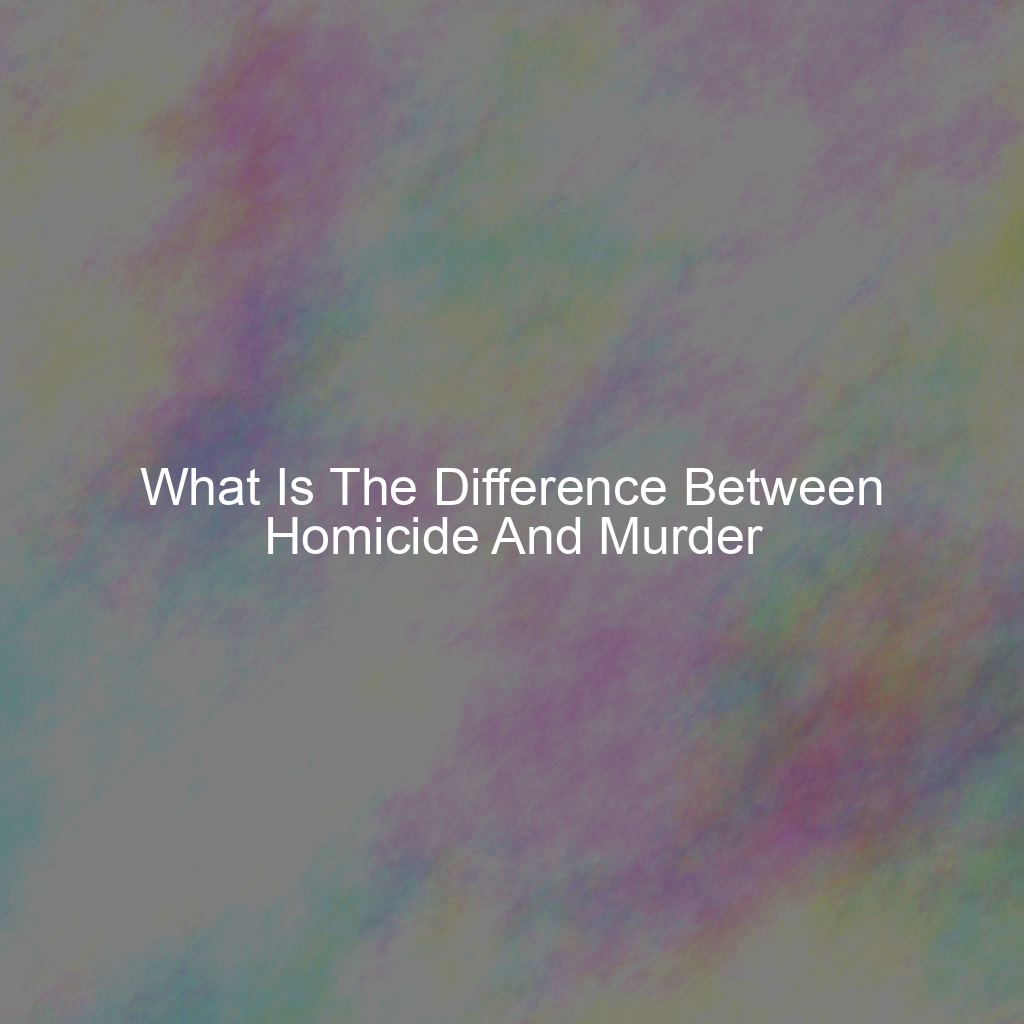What is the Difference Between Homicide and Murder
When it comes to the difference between homicide and murder, murder is murder, but not all homicides are murder. The crime of murder is called homicide. Criminal intent to kill is the worst kind of murder because the person doing it knows they are breaking the law.
So, homicide is a broad term for any action that results in the death of another person. It includes self-defence and accidental killings, which are known as manslaughter. Although murder charges are a type of homicide, they are still charges of murder.
In this blog, we will discover the main difference between homicide and murder.
What does homicide mean?
Someone committing homicide means that they killed another person. Even though this word is very general, it is essential for telling the difference between killings that are legal and killings that are illegal.
There are different types of murders, including legal and illegal ones. This shows how complicated the legal system is and how it tries to cover all the different situations in which someone can kill someone else. The law recognizes “lawful homicides” as times when killing someone does not make you guilty of a crime. Some of these are:
- Justifiable Homicide: You can kill someone in certain legally allowed situations under this category. Mostly, it includes acts of self-defence or defence of others where killing someone is seen as necessary and fair. In addition, police officers may be allowed to use deadly force to stop someone from committing a serious crime, because they are protecting the public.
- Accidental Homicide: Accidents that kill someone but are not caused by criminal negligence fall into this category. People involved in these kinds of incidents usually didn’t mean to hurt anyone, and unexpected events happened that ended in death. The legal system sees these events as tragic, but they are not crimes as long as all safety precautions are taken.
What Does Murder Mean?
Murder is a type of illegal homicide that is a worse kind of killing because it involves “malice aforethought.” This word refers to a number of mental states that show how responsible someone is, such as:
- With the intent to kill, someone chooses to end another person’s life.
- Doing something with the knowledge that it could seriously hurt or kill someone is called “intent to cause great bodily harm.”
- Depraved Indifference to Human Life: A clear lack of respect for human life, shown through actions that show a careless disregard for the danger it poses to others.
More specifically, the law divides murder into various degrees based on the killer’s intentions and the events preceding the crime:
- First-Degree Murder: This type of murder involves planning and thinking about how to kill someone. First-degree murder can happen if certain things are true about the victim, like if they are a police officer, or if they commit murder along with another felony.
- Second-Degree Murder: Killings that are done on purpose but not with any planning are usually classified as this level. It also includes acts of extreme carelessness that show a severe lack of respect for human life.
Common defences in court against murder and homicide
Self-defence is one plan. You may be justified in killing someone if you think you were in immediate danger of harm and had to use force to protect yourself. But you should only use as much force as you need to. If this defence works, the person can be found not guilty.
Lack of intent is another line of defence. The police have to show beyond a reasonable doubt that you meant to do the crime. If there is proof that the killing was accidental or happened in the “heat of the moment,” it could hurt the prosecution’s case.
A lot of criminal defence lawyers use evidence of unintentional killing to get their clients good results, like not being charged or accepting a lesser sentence.
Conclusion
The legal definitions of homicide and murder show the differences between the two crimes. In most states, someone is charged with murder only if they can prove what the law says they did.
In most states, someone is charged with murder only if they can prove what the law says they did. That usually means that the person did it with the intent to kill or seriously hurt that person.
Homicide is when one person kills another person. But murder is killing someone without a good reason. Most of the time, it is less serious than murder when there is no intent to kill. Criminal law spells out the differences between homicide and murder in terms of the law.
The criminal justice system is hard to understand. The legal system can also be harsh. If you or someone you care about is being accused of a crime in Florida, you should get in touch with a skilled criminal defence lawyer right away.
Frequently Asked Questions
What does the word “homicide” really mean?
The act of one person killing another is known as homicide. The term “homicide” has a wide definition and can refer to both legal and illegal acts, such as murder.
What is the difference between killing someone legally and killing someone illegally?
Killing a person is called homicide, and there are two main types: unlawful homicide and legal homicide. You can be charged with illegal homicide for both culpable homicide and murder. Not every culpable homicide is a murder, but every murder is a culpable homicide.
What does “death by murder” mean?
When one person directly causes the death of another, this is called homicide. Hemorrhagic deaths that happen during or are connected to the commission of a felony are also crimes.

